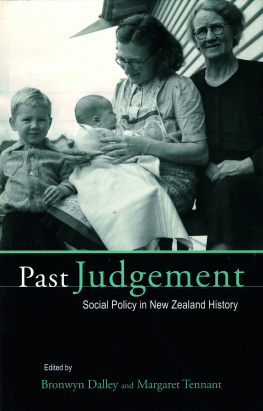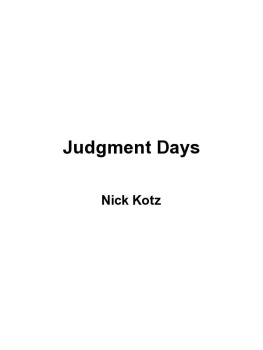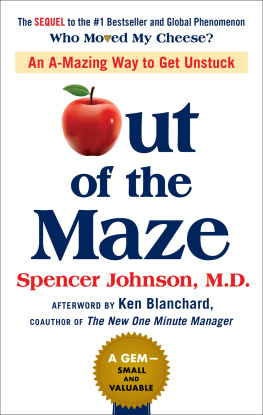For William, Robert and Alison
Nursing Power and Social Judgement
Martin Johnson, RN, MSc, PhD
Professor of Nursing
University of Central Lancashire
Preston
First published 1997 by Ashgate Publishing
Reissued 2018 by Routledge
2 Park Square, Milton Park, Abingdon, Oxon OX14 4RN
711 Third Avenue, New York, NY 10017, USA
Routledge is an imprint of the Taylor & Francis Group, an informa business
Copyright Martin Johnson 1997
All rights reserved. No part of this book may be reprinted or reproduced or utilised in any form or by any electronic, mechanical, or other means, now known or hereafter invented, including photocopying and recording, or in any information storage or retrieval system, without permission in writing from the publishers.
Notice:
Product or corporate names may be trademarks or registered trademarks, and are used only for identification and explanation without intent to infringe.
Publisher's Note
The publisher has gone to great lengths to ensure the quality of this reprint but points out that some imperfections in the original copies may be apparent.
Disclaimer
The publisher has made every effort to trace copyright holders and welcomes correspondence from those they have been unable to contact.
A Library of Congress record exists under LC control number: 97071457
ISBN 13: 978-1-138-33075-7 (hbk)
ISBN 13: 978-1-138-33076-4 (pbk)
ISBN 13: 978-0-429-44766-2 (ebk)
This book is about the judgemental labelling of people in hospital care. Despite its focus of data collection being one medical ward, the issues it raises doubtless have significance for most health and other professions who have responsibility for achieving compliance with medical or social goals. Previously described by Stockwell (1972), Fielding (1986) and others, being seen as good, bad, popular or unpopular has been commonly seen as a concomitant of certain traits or characteristics which individuals possess, such as being elderly or having a certain type of illness such as stroke.
The field work was done in the warm summer months when I voluntarily worked as a bank staff nurse but also presented myself openly as a researcher. I did follow-up interviews over the succeeding months. I worked as a nurse in the ward and utilised an ethnographic approach in which overt participant observation and conversational interviews were important sources of data. Themes emerged during the analysis which refute the traits theory of social judgement (or moral evaluation) which is implicit in most previous work.
I describe the phenomenon of social judgement in some detail and set it into a discussion of the social context where an unequal balance of power is integral to provider-recipient relationships. Here it becomes clear that a relationship exists between the need for nurses to sustain their power over patients and the use of labels as part of this process of disempowerment. Judgemental labelling is seen from an interactionist perspective as a process through which care is managed and which provides nurses with a strategy for coping with the emotional labour of care. For descriptive purposes the process is analysed in four categories, of judging people, negotiating, struggling and acquiescing. Categories of caring and coping are discussed as an illustration of some of the potential consequences of caring in a climate of judgemental labelling. Of particular interest were categories of excellent care which nurses provided, sometimes covertly, as apparent compensation for the perceived deleterious effects of negative social evaluations of patients. In other situations we used coercive and paternalistic approaches which open the door to morally questionable conduct.
I conclude the book with a summary of the beginning (or substantive) theory of social judgement as it was evident to me in Howarth ward at a large city teaching hospital. I challenge the common conception of consensus upon and permanence of labels, since ideas of negotiation and conflict were very necessary to my understanding and interpretation of the data as it emerged. I make a number of provisional recommendations such as that nurse researchers and educators should do more clinical research and attempt to utilise more participatory and action-oriented methods in the future. I further suggest that attention to the micropolitics of the patient-care relationship is very important to the understanding of moral questions in health care where decisions are clearly made in relation the context rather than textbook principles. Currently this context is laden with subjective evaluations of social value of persons, a vital consideration in moral decision-making.
I am indebted to a large number of people who in various ways have enabled me to undertake this study, the substance of which was presented for a PhD of the University of Manchester. Professor Christine Webb combines the rare qualities of exceptional clarity of thought, attention to detail and sensitivity when my work needed substantial revision. Having a realistic appreciation of my other lives, since I was a part time student, she also knew just when to give me a nudge to get back on target and was an immense source of support. In course of the work I attended Professor John Harris's health care ethics lectures. As the work developed it became one more of applied sociology of health care than of moral philosophy. He nevertheless maintained an interest and has been the source of some key challenges to my previously rather orthodox thinking about nursing and moral issues. My debt to Alison, William and Robert Johnson who made great sacrifices enabling the work to be completed, is great indeed.
The nurses and patients on Howarth ward bore my intrusion into their world without complaint and I thank them dearly for their time and kindness. If any portion of this work could be construed as a criticism of them as individuals then I have misrepresented the argument. Rather, I seek to describe nursing as both I and they practiced it in Howarth ward for those few months. Both grumbling and brilliant care were facts as I saw them, and are strategies for dealing with what would otherwise be impossible strain.
Martin Johnson, July 1997
A good deal has been written about research perspectives in qualitative research (Schwartz and Jacobs, 1979; Silverman, 1975; Denzin,1992). Various approaches have been identified, and much debate takes place about definition and emphasis of particular traditions. For example, the terms phenomenology, symbolic interactionism, ethnography, feminist methodology and even ethnomethodology seem to be used frequently and with a good degree of overlap. What can be said with some degree of confidence is that these approaches together constitute a reaction to, if not an attack upon, the cultural and scientific dominance of positivism, particularly in Europe, America and more recently Australasia.
Positivism
Positivism can be seen as the belief that both natural and social phenomena can, given the right developments in methods of classification and measurement, be recorded as facts. That is to say that there is assumed to be an 'objective reality' which can be identified, and which persists (Hammersley, 1992). Generally speaking positivist methods involve the production of 'hypotheses' which the method sets out to verify or refiite. These hypotheses are often (though this is not always stated) deduced from extant theory in the social, behavioural or biological sciences (see for example Boore, 1978). Every attempt is made within the positivist tradition to remain 'value free', or neutral, and any attempt to record mediating social processes or meanings may be seen as inappropriate. Writing as ethnographers but in order to give some flavour of what this can mean for the observation of the social world, Hammersley and Atkinson (1983:4) suggest that:











